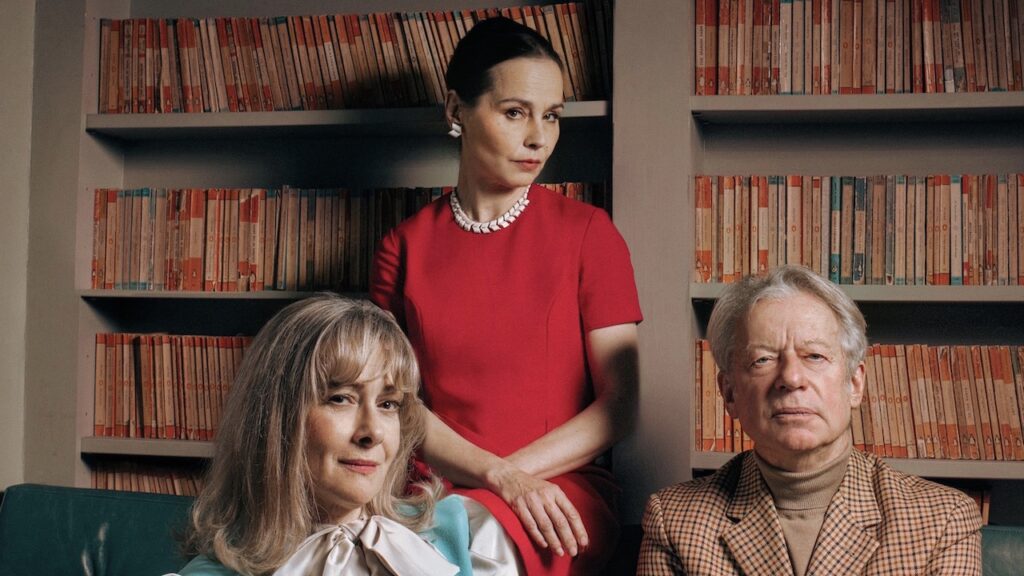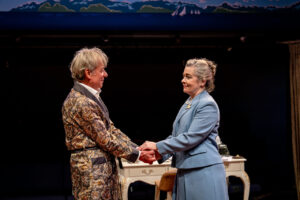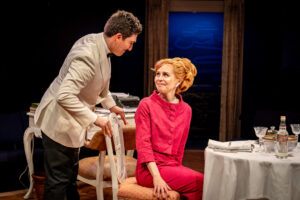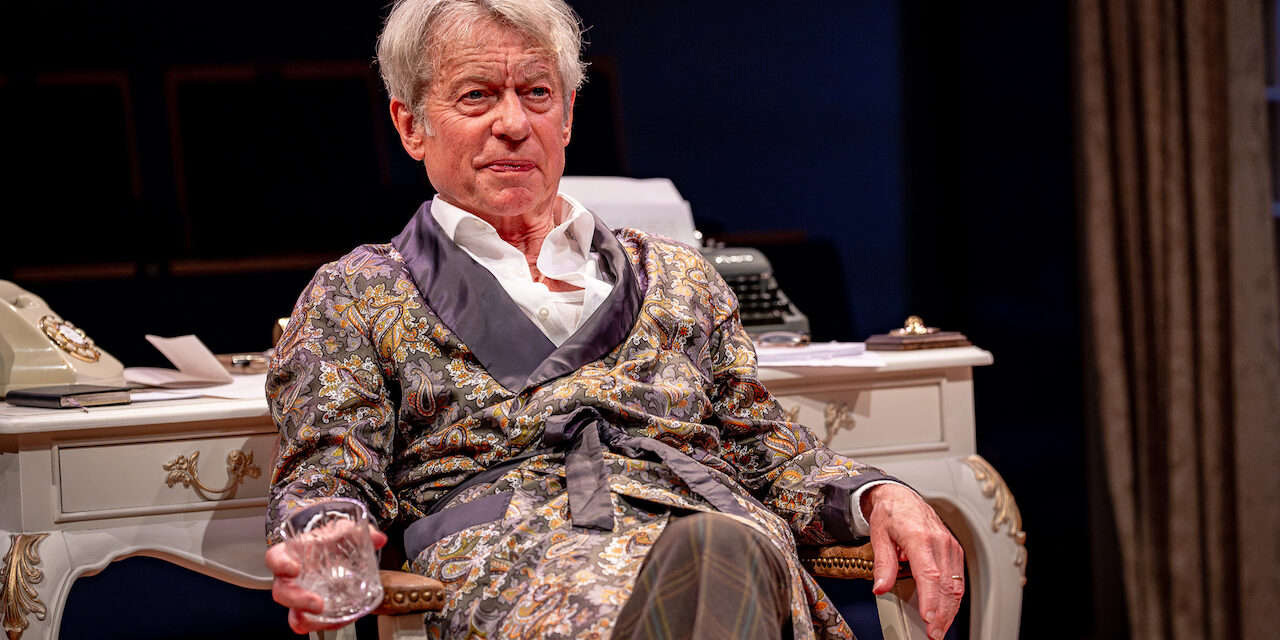
9, 10, 12 July
Many theatregoers will associate Noël Coward with style rather than with substance, and for that he has only himself to blame, for throughout his life he assiduously promoted an image of himself as a witty bon viveur, the silk dressing gown and long cigarette holder being his instantly recognisable trademarks. But there was always more depth to him than that, as this fine Orange Tree Theatre production of A Song At Twilight powerfully demonstrates. First performed in 1966, it is one of three plays all set in the same luxurious Swiss hotel, presented together as Suite In Three Keys. It is Coward’s last major work for the stage and despite his failing health he was determined to perform in it: ‘I would like to act once more before I fold my bedraggled wings.’
A Song At Twilight is a brave play, featuring as its central character a famous writer who has hidden his homosexuality from public awareness by using his relationships with women as a form of disguise. In 1966 homosexuality was yet to be decriminalised, the Lord Chamberlain was still censoring plays, and this was the first time that Coward felt emboldened to address the topic directly. The central character is Hugo Latymer, an aging and irascible author whose German wife Hilde is going to spend the evening with a friend while he has a reunion with Carlotta Gray, an English actress of faded glamour who was his lover very many years ago. Emma Fielding endows Hilde with quiet, long-suffering dignity,

while in contrast Tara Fitzgerald’s Carlotta is wickedly teasing, making eyes at the waiter, Felix (Steffan Rizzi), and provoking Hugo to outbursts of rage.

In a subtle, multi-layered performance Stephen Boxer gives hints that Hugo’s prickly self-importance is a defence mechanism. What he is defending himself from is not made clear for some time, but there is a sense that, in their different ways, the two women might know Hugo better than he knows himself.
The first half of the play features a great deal of verbal sparring, firstly between Hugo and Hilde and then between Hugo and Carlotta. These exchanges (not always entirely audible at the rear of the theatre) are frequently enlivened with sharp-edged wit, but the plot treads water for too long, and it is only at the very end of the first half that the real purpose of Carlotta’s visit is revealed. She has letters that show that Hugo’s carefully crafted public persona is a lie. Is she going to blackmail him?
The second half of A Song At Twilight has far more substance than the first, revealing the very serious damage Hugo has done. Coward once asserted that the theatre should never be used as ‘a temporary soap-box for political propaganda.’ Yet here, in the flawed character Hugo, he lays bare the cruel absurdities of a law that forced so many to lead their lives in elaborate charades of pretence. Intellectually arrogant, overly sensitive about his status as a writer, heartless in the way he has discarded a past male lover, and selfish in the way he has used women as mere camouflage, Hugo is far from heroic. Yet in the final moments of the play he attains a kind of tragic status as he is forced to confront the bitter consequences of his failure to be true to himself. Director Tom Littler has ensured that nobody who sees this engaging production of A Song At Twilight will fail to recognise that Noël Coward, at his best, could create truly serious work.
★★★★☆ Mike Whitton, 10 July 2024
Photo credit: Rebecca Need-Meneer, Steve Gregson


